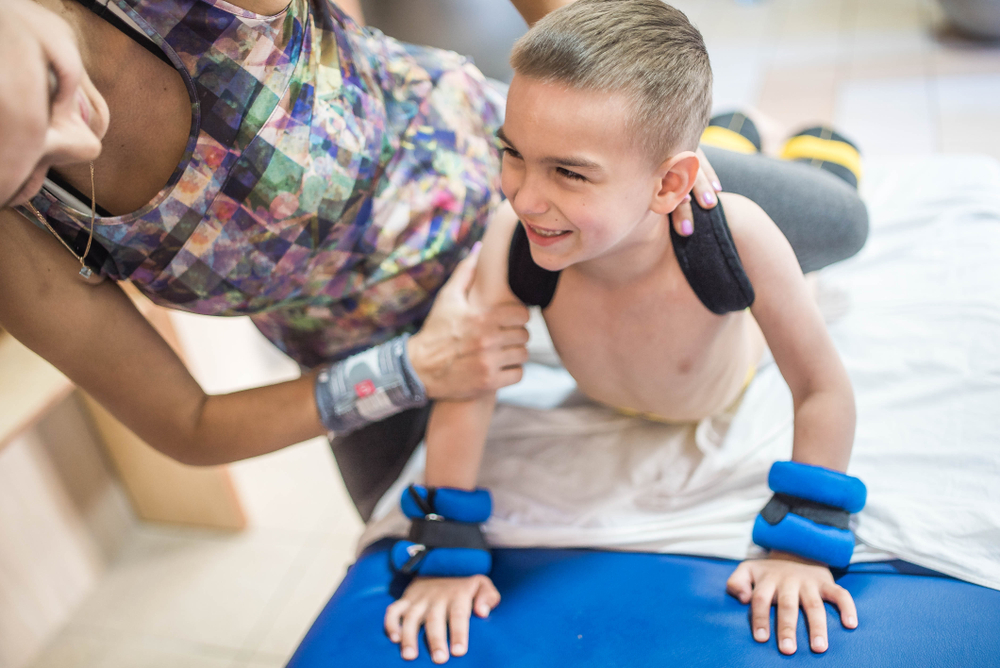If you wonder about the benefits of incorporating play into pediatric physical therapy, check out this guide from Let’s Grow Pediatrics.
What Is The Importance Of Play In Child Development?
Play is an integral part of a child’s development, as it helps improve their cognitive, physical, social, and emotional well-being. Through play, children can tap into their creativity, imagination, dexterity, and physical and emotional strength. Additionally, play is critical to healthy brain development. As they engage and interact with their environment, children master their world and develop new competencies that help build their confidence and resilience to face future challenges.
When children are allowed to direct their own play, they are able to develop their decision-making abilities, move at their own speed, discover their true interests and truly immerse themselves in their passions. As opposed to simply sitting down and watching something, play encourages active, healthy bodies. Most importantly, play is a simple pleasure that is treasured during childhood.
How Is Incorporating Play An Important Part Of Pediatric Physical Therapy?
- Play is engaging. A therapist can facilitate play, giving the child the opportunity to take ownership of the activity and engage with it at a meaningful level. This requires the therapist to be creative and flexible in their approach, adapting to the child’s input and making it a therapeutic experience. Even the most imaginative kids can find a way to get out of an assigned task, so the right therapist would be prepared to work with a child’s creativity.
- Play helps children develop gross motor skills. Gross motor skill development is essential for performing everyday activities such as kicking, lifting, throwing, walking, and running. These activities require the use of large muscles in the arms, legs, and torso. Additionally, developing gross motor skills forms the foundation for fine motor skills, which include strength, balance, reaction speed, and physical body awareness.
- Play does not need to have an outcome. Therapy sessions often come with intended outcomes, but this concept is more about the child’s outlook towards the activity rather than the goals of the therapist. It is important for the child to believe that they are doing the activity for the sake of doing it, and not because they are obligated to do so. This will make the activity seem less like a chore and more like something they get to do.
- Play allows children to try and try again. Some therapists may expect children under their care to master tasks quickly, but this is not always the case. Children and athletes may go through a learning curve that can make the skill they are trying to learn look messy and imperfect. Despite appearances, this is actually a beneficial part of the process, as it can ultimately lead to a better developed skill. While it can be difficult for some therapists to recognize this curve, at Let’s Grow Pediatrics, we believe it is an essential part of helping our patients improve.
How Can My Child Benefit From Early Intervention?
At Let’s Grow Pediatrics, we believe in taking proactive steps to prevent delays and learned compensatory patterns in children with developmental diagnosis. As such, we recommend that a physical therapy referral be obtained prior to the first signs of delay. We offer evaluations for developmental disabilities, torticollis, and plagiocephaly from as early as 1 month of age.
Let’s Grow Pediatrics Is The Best Choice For Your Child
If your child is under 18 years old and has some form of injury or delays in development that is affecting their quality of life, he or she may be a good candidate for intensive physical therapy. To find out more about our treatment options and how your child can benefit from Pediatric Intensive Physical Therapy, reach out to Let’s Grow Pediatrics in Edmond, OK. Call 405-562-3485 to schedule your consultation today.

